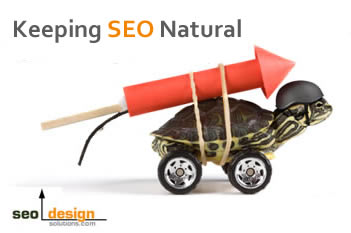A seasoned SEO will tell you, it’s not always the keywords you choose that will drive the most visitors and traffic to your website.You have to implement keyword research to find the keywords that yield the most traffic and inherent potential for conversion.
Often, according to analytics, it’s the keywords you least expect that outperform your most groomed preferred landing pages by exceeding preconceived notions or expectations as a result of underestimating popularity or consumer search trends.
SEO and keyword positioning are not predicated as assumptions, so, when traffic is at stake, it’s better to have firm data to frame relevant content, keywords and respective landing pages.
Since no two people search alike, a genuine SEO campaign starts with keyword research and ends with a click through and conversion. The idea is to understand the mental model of the end-user and use compelling, persuasive copy to entice them to take action by matching their intent with your solution based benefit, product or service.
However, one step removed from this process is the originating intent behind (a) why they conducted the search in the first place or (b) chose your result from the other 9 options on the page.
If you understand that the underlying intention is to tactfully appease the prospect using search engine proven synonyms and stellar keyword modifiers which can lower bounce rates and increase user engagement systematically.
In layman’s terms, you need to make the most of each page in your website by leveraging the convergence of your primary value proposition and their originating search intent.
At the risk of oversimplifying conversion optimization, the main distinction between a website that satisfies visitors and one that does not is the use of content, imagery and assets on the landing page.
If a landing page cannot convey what its purpose is within 10 seconds or what benefit it can provide to the end user, then it has already failed to capture 90% of its audience.
A website with high conversion rates typically has a one-centered focus (providing the user with what they need in a frictionless fashion). Also, the less cluttered the visual element are and the choice of visual assets reinforce the conversion objective to prevent the user from being distracted and clicking away from the desired conversion objective.
People will always search for the best deal, the lowest price, or the best bundle when comparing benefits when they are eager to make a purchase. If you can appeal to their emotions using actions words and click appeal, then you are one step closer to being “the website” and not just another click-and-run casualty where they move on, retreat to a search engine, click through and purchase from your competitors.
Keyword research can discover all of the most effective buzzwords and behaviors that often accommodate conversion. Through colorful content and tactful copy writing you can take that keyword research and blanket a market by creating specific landing pages geared for “exact match variations” of a semantic theme.
Here are a few known “click triggers” that can distinguish your website from your competitors when it’s time to facilitate a purchase. Just remember, it’s about appealing to the right visitor at the right time and that means positioning is imperative.
Most people do not click or even scroll below the fold, unless the top 3 results are so incredibly off topic or have keywords stuffed to the hilt whereby a quick skim would not suffice to summarize what to expect if they clicked that result.
The real takeaway here is, don’t just spend a few minutes doing keyword research and off you go optimizing each fragment with reckless abandon. Spend a whole day exploring the possibilities of vertical market analysis, the vast correlations of synonyms or polysems and implementing mid to long-tail keyword modifiers (best, top, leading, affordable, for sale, best price on, etc.) to find keywords rich in conversion that are already laced with consumer intent.
You don’t have to waste three months targeting a keyword that could yield 150 searches a day, when you could easily target 5 keywords that exceed that volume collectively with 1/5 of the competition and drive traffic within a few hours to a few days with ease.
Also, keep in mind that your content requirement grows as your keyword list does. It is better to start off with exact match landing pages “whereby the keyword and url structure mirror the keyword”, until your collective web pages are earmarked as THE destination for all thing related.
Instead of trying to build a catch all, understand the limitations of each page and how you can segment your traffic with a targeted array of landing pages. Each page should serve as a consolidated apex of relevance internally (as a result of internal linking) or implement an alternate conversion path through images (Choose Option 1 for A, Choose Option 2 for B and Choose Option 3 for C) to the most appropriate page to facilitate the ideal setting for THAT keyword / topics conversion objective.
The ideal convergence of consumers to conversion is to identify which keywords you have overlooked and determine if you can instill relevance through editing or creating new landing pages to monetize existing traffic.
If 100 visitors are not seeing the correlation or continuity and bouncing back into search engines and you can lower that percentage to 90 visitors and converting 10 instead of 1, then your cost per acquisition (CPA) remains the same while your conversion rates spike through the roof.
This one remedy as a result of merely paying closer attention to (a) the traffic that is slipping through your fingertips and (b) the potential conversation those keywords represent could shift your entire online business model into the black. That is, if you are brave enough to see past your preconceived notion of which keywords yield the most conversion for your website.
Find the relevance / emotional disconnect between your keywords and your landing pages and eliminate them with simplicity and a single conversion objective for each page potential prospects are frequenting.
SEO may not be rocket science, but you do have to remember it’s not just about traffic; it’s about continuity and conversion which goes back to keywords and emotional click triggers.
The notion that you only have one chance to make a first impression means more now than it ever did, online, the chances of someone returning twice if you fail to impress them the first time is next to nil. So, target the low hanging fruit, exceed their expectations and make an offer they can’t refuse on dozens of customized landing pages based on solid keyword research.












Great article. Totally agree. I have a client that drives about 250k visitors per month, with only 1500 converting. This tells me there’s a huge opportunity to convert more by simply optimizing the landing pages. Once you have enough traffic, it’s time to optimize until all the fat is trimmed away.
Michael Locke
ML Web Consulting
http://www.mlwebco.com
Google’s keyword adword tool has brought in a lot of comfort when searching for keywords.
We just need to type our main keyword and it lists out all the other keywords that should be used.
Thanks Michael
Appreciate the comment…
Jeffrey,
Great article – I totally agree with the potential of landing pages optimized toward specific keywords. One SEO key variable we have been analyzing is the different number of keywords you are hitting with your SEO campaign month over month. We believe a successful campaign will build out the total number of keywords your website targets.
Thanks for the insight.
-Zach
Zach:
Ironically, often people get too caught up measuring the impact of SEO as it correlates to their own tunnel vision.
We have one client that obsessed on 4 keywords and could only see the benefit using that as a measuring stick, all the while the campaign netted them over 1100 keywords when we started they ranked for 25, so they totally missed the boat.
The downside of not looking past your own mental yardstick is, you miss the opportunity to create new landing pages or tweak legacy content to create a better conversion funnel.
Different sites rank for different keywords at different times. So, just because you want a keyword and obsess over it doesn’t mean you should ignore the other unintentional keywords that crop up along the way.
The objective is not traffic, but conversion, but this is often too hard to convey when people are too close.
your blog is very impressive for seo knowledge.
thanks
my regards
Thanks for the very helpful information. I enjoyed reading your article about SEO and I found it very interesting. Staying tuned for more.
It’s not all about keywords, if you have an overwhelming number of quality links that link to you with keywords A or B then that can overpower your on-site SEO and make you rank for the words others chose rather than you.
Just like adobe acrobat for “click here”… No doubt folksonomy has impact, but on page SEO is far more important for longevity (in case those links lose value or ranking metrics) since algorithms shift.
Hello mate
Usually, if you leave comments on others blogs that are related or relevant to yours, you stand a higher chance of driving more traffic to your website. So I add you on my site. Thank for nice information you gave
im new to the field, but all I read is SEo and how important it is for everything so bottem line is do it or make a product and let other people do it.
@Williams:
Thank you and I hope you enjoy reading.